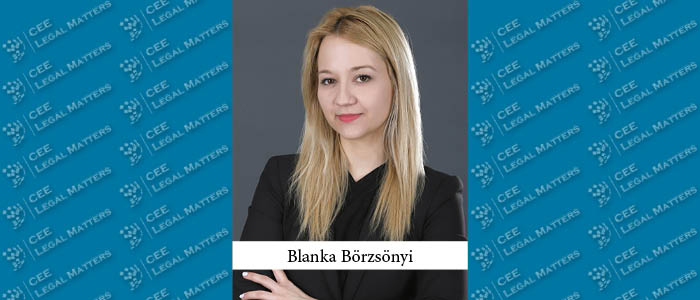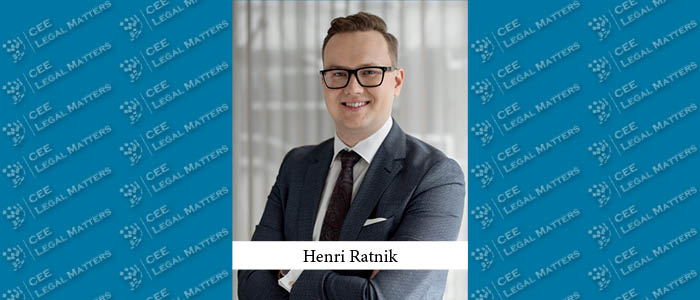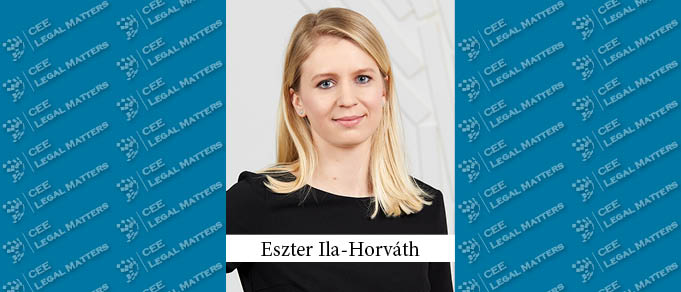The National Water Resources Protection Map, required for the licensing of domestic and agricultural wells under the amendment to the Water Management Act, has been completed and is available on the website of National Water Directorate (in Hungarian: “Országos Vízügyi Főigazgatóság”). This Protection Map will play a central role in the future licensing of domestic groundwater wells.
Tender Opportunities in North Macedonia
Tender Opportunities in North Macedonia
What’s the Cost of Unlawfulness – Part 1
According to the definition contained in the Law on Misdemeanors (Official Gazette of RS no. 65/2013, 13/2016, 98/2016 – decision of CC, 91/2019, 91/2019 – other law and 112/2022 – decision of CC) (“the Law“), misdemeanor is an unlawful act established as misdemeanor by law or other regulation of a competent authority and which is subject to misdemeanor sanctions.
Ukraine: Improving Guidance on Identifying Ultimate Beneficial Owners
On 19 September 2023, the Cabinet of Ministers of Ukraine and the National Bank of Ukraine adopted Regulation No. 1011, introducing a comprehensive methodology ("Methodology") to identify the ultimate beneficial owners (UBOs) of legal entities in Ukraine. This significant development aims to enhance transparency and provide detailed guidance on the process of identifying UBOs, with the ultimate goal of ensuring that legal entities in Ukraine are able to correctly identify UBOs within their ownership structure and disclose this information to the competent authorities.
Romania: Important Fiscal Measures Published for Reducing the Budget Deficit
On 26 September, the Romanian Government approved by way of Law No. 296/2023 (the “Law”) important fiscal measures intended to reduce the budget deficit and ensure long-term financial stability. After multiple debates, the Law was published in Official Gazette No. 977 of 27 October 2023.
ECJ Gives its Judgment in the Xella Case: Key Takeaways
In July 2023 the European Court of Justice (ECJ) gave its judgment in case no. C-106-22 (Xella Judgment). The case was referred by the Fővárosi Törvényszék (Budapest High Court, Hungary) for preliminary ruling on the interpretation of Article 65(1)(b) TFEU in conjunction with recitals 4 and 6 of Regulation (EU) 2019/452 (EU FDI Regulation) and Article 4(2) TEU.
“Golden Parachutes”
A golden parachute is a compensation agreement guaranteeing significant financial benefits to a top executive who loses their job, namely chief executive officers and other high-ranking employees who depart because of a merger or acquisition. They are often applied through clauses in employee contracts, specific contracts, or acts of incorporation.
Can Companies Be Sued for Using a Name Similar to Another Company in Hungary?
The company name is an important asset of the company and also helps the customers when choosing between products or services. Therefore, a new company can only be founded with a name that is sufficiently different from existing companies. What are the legal options for a company if, despite the above, a new company with a very similar name has been registered?
Key Amendment to the Code of Commercial Companies in Cross-Border Company Reorganisations
The new provisions of the Code of Commercial Companies, which came into force on 15 September 2023, include a number of changes regarding cross-border and domestic mergers, divisions and conversions of commercial law companies. This is yet another major amendment to the Act, introduced less than a year after a significant amendment specifically concerning the formation and operation of capital groups, as well as changes to the rules of operation of company bodies, came into force.
The Entry into Force of the New Land Registry Act Is Postponed Again to October 1, 2024
On 1 October 2023, the amendments of the new Land Registry Act entered into force and as a result, the Act will enter into force only on 1 October 2024, instead of the date of 1 February 2024 already postponed from the initial date of 1 February 2023.
Ukraine: Advertising Law Reform
Effective from 2 October 2023, Ukraine has ushered in a series of substantial amendments to its Advertising Law, aimed at modernizing advertising regulations and harmonizing them with the EU Audiovisual Media Services Directive.
Marketing Emails with Consent or Without Consent – Legitimate or Unlawful Sales Tactics?
Sending marketing emails is an excellent way to increase sales. Those who don’t make sales don’t do business. However, a question arises as to whether this complies with strict data protection rules. It is known that the Data Protection Inspectorate is increasingly vigilant and imposes hefty fines for violations.
The Revocation of the Act on the Employment of Guest Workers
On 5 October 2023, the Government adopted a new decision according to which it will review the current regulation on the entry, residence and employment of third-country nationals in Hungary with the aim of tightening the statutory provisions in this respect.
Legal Entities are Obliged to Register in Unified Judicial Information and Telecommunication System
On 18 October 2023, Law of Ukraine “On Amendments to Certain Legislative Acts of Ukraine Regarding Mandatory Registration and Use of Electronic Offices in the Unified Judicial Information and Telecommunication System or its Separate Subsystem (Module) Enabling Document Exchange” No. 3200-IX, dated 29 June 2023, will be enacted (“Law”).
Moldova - Corporate Amendments
As of October 22, 2023, a number of significant legal amendments come into effect regarding the relationships between shareholders and founders of commercial companies in the Republic of Moldova. These amendments introduce essential reforms to the Limited Liability Company Law No. 135/2007 and aim to enhance the business environment, facilitate investments, and strengthen shareholder relationships.
Amendments to the Civil Procedure Code on Mandatory Registration and Use of Electronic Offices in the UJITS
On 18 October 2023, the Law of Ukraine "On Amendments to Certain Legislative Acts of Ukraine on Mandatory Registration and Use of Electronic Offices in the Unified Judicial Information and Telecommunication System (UJITS) or its separate subsystem (module) that provides for the exchange of documents" No. 3200-IX dated 29 June 2023 (hereinafter - the Law) was enacted. The Law amends the provisions of the procedural codes, in particular the Civil Procedure Code of Ukraine (hereinafter - the CPC).
5G CAM: Revolutionizing Cross-Border Mobility
5G is the fifth-generation mobile network, which promises to lead to a revolution, particularly in transportation. This article focuses on connected and automated mobility (CAM), an offspring of 5G. CAM lets vehicles communicate with each other and with the surrounding infrastructure. Such communication can, in fact, enhance road safety, ease traffic jams, and cut CO2 emissions. With this in mind, countries worldwide are diligently working on developing 5G cross-border corridors.
The Fate Of Building Permits Following The Cancellation Of The Zonal Urban Plan Of The 2nd District
On 7 June 2023, Bucharest Tribunal annulled, in the first instance, the zonal urban plan („ZUP”) of the 2nd District and suspended its effects until the final resolution of the case file, noting that it reduced green spaces, allowing the construction on tens of hectares of such areas, including areas occupied by parks, lakes, sports fields, etc. The case file is currently in appeal before Bucharest Court of Appeal[1].

































